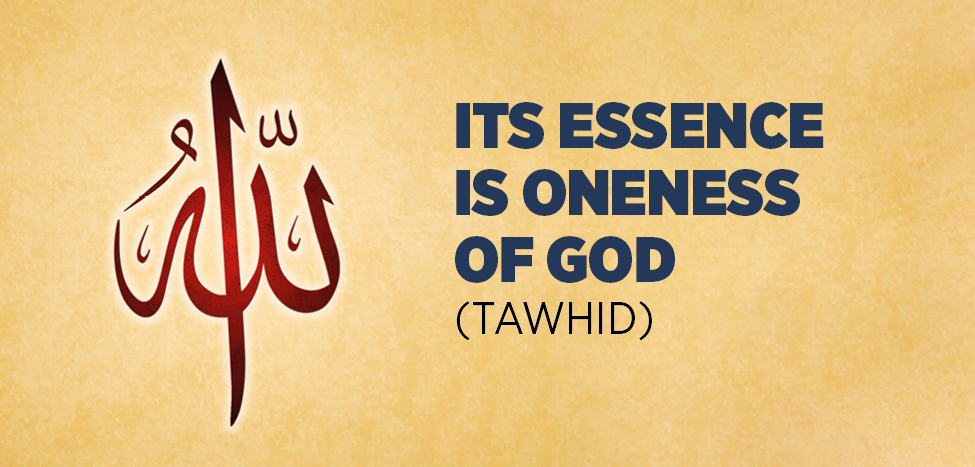What does islam teach about the environment?
God Almighty states that He has supplied everything in the environment for human beings to benefit from. In order to be appropriately thankful for this, we need to approach our environment with consciousness of our trust and responsibility. To be disdainful of the environment or to destroy or waste shows ungratefulness and wreaks damage that will ultimately harm us. God Almighty says the following:
“Mischief has appeared on land and sea because of what the hands of men have earned, that Allah may give them a taste of some of their deeds: in order that they may turn back from evil.” (Ar-Rum (The Romans), 30:41)
In fact, God Almighty had earlier commanded “And the Firmament has He raised high, and He has set up the Balance (of Justice), in order that you may not transgress due balance.”[1] However, humanity did not obey and now they are paying the price.
By reflecting serenity and beauty in his heart, a Muslim treats other human beings, animals, plants, and even non-living beings well. He is careful about not hurting any being. One day, a funeral had passed by our Master the Messenger of Allah (blessings and peace be upon him) who said:
“Either he achieved rest, or others have been relieved of him.” The Companions asked:
“O Messenger of Allah, what do you mean by ‘Either he achieved rest, or others have been relieved of him’?” The Messenger of Allah (blessings and peace be upon him) said:
“When a believer passes away, he is saved from the tiredness and worries of the world and he achieves the mercy of Allah. When a sinner or an evil person passes away, people, lands, trees, and animals are relieved of him, and they find peace.” (Bukhari, Rikâk, 42; Nesâî, Cenaiz, 48; Ahmed, V, 296, 302, 304)
Human beings must avoid things that may bother others everywhere and in every situation. Polluting and littering the land, water, air, and the scenery of the city, town, and village that we live in is an act that does not fit with a human being’s honor and dignity. This is not being considerate of others and ourselves.
Muslims are taught to consider that others may be bothered and the natural beauty of nature would be spoiled because of their littering. They consider it a requirement for being a mature believer to avoid littering the shells of seeds and nuts after eating, bottles, cans, paper, packaging, and other things that bother human beings and animals into the streets, ways, and picnic areas. Our master the Prophet considered removing things that may harm people such as a branch or a thorn bush that may bother the passer-by people as one of the components of belief,[2] and informed us that Allah does not like those who bother others. Muaz bin Anas (Allah be pleased with him) narrates:
“I was in a military expedition with the Messenger of Allah (blessings and peace be upon him). Soldiers narrowed the camping area and blocked the way. Upon this, the Prophet (blessings and peace be upon him) sent an announcer and had him say the following to the soldiers:
“Whosoever restricts someone or blocks a way (or bothers a believer), that person does not have any of the rewards from jhad” (Abu Dawud, Jehad, 88/2629; Ahmad, III, 441)
Here, our master the Honorable Prophet announced that it is so wrong to block up places and streets unnecessarily or to bother the subjects of Allah for any reason and that those who act that way would lose their divine rewards.
For this reason, one must avoid acts that may bother people such as littering haphazardly, spitting in public places, parking indiscriminately, or placing things on the way that makes bypassing difficult. Muslims not only paid attention not to bother other living things, but they even served other living things as the creatures of Allah. The famous French writer Montaigne mentioned that “Muslim Turks have even built foundations and hospitals for animals.” Guer, a French lawyer who visited the Ottoman Empire in the 17th century, mentions a hospital for sick cats and dogs in Damascus. On these kinds of foundations, Prof. Dr. Sibai informs us as follows:
“In the old tradition of foundations, there are places to treat and feed sick animals. The Green Field (today’s city field in Damascus) was a green field that was donated for the feeding of beasts of burden that were dumped by their owners due to the decrease in their labor power. Those animals would graze there until they died. Among the Damascus Foundations, there were places where cats could eat, rest, and walk around. So much so that, there were hundreds of cats that were there every day and who had no problems to find their daily food.”
The religion of Islam that places this much importance on living beings naturally treats trees and green fields with the utmost care. The Messenger of Allah (blessings and peace be upon him) said:
“Even if it doomsday has risen and one of you has a seed in his hand, he should plant it before it is end of the world if he can!” (Ahmad, III, 191, 183)
Abu Darda (Allah be pleased with him) who is among the Honorable Companions was planting a tree. Someone approached him and showed his amazement saying:
“Even though you are one of the Companions of the HE Prophet, are you busying yourself by planting a three? HE Abu Darda answered him:
“Slow down, don’t judge me so quickly! I heard the Messenger of Allah (blessings and peace be upon him) saying that:
“If someone plants a tree and any of the creatures of Allah eat from the fruits of that tree, this would be like his charity.” (Ahmad, VI, 444. See Muslim, Musakat, 7). Again the Messenger of Allah (blessings and peace be upon him) said:
“Whoever cuts a sidre (shady) tree (without a good reason), Allah drags his head to hell.” (Abu Dawud, Adab, 158-159/5239)
Our master the Prophet prohibited armies from cutting trees, damaging vegetation, and hunting by announcing that Medina and Taif, along with Mecca, were sacrosanct harem (prohibited).[3] Again for the crop field of the tribe of Banu Haritha, he said: “Whoever cuts a tree from this field should plant one to replace it!”[4]
The Messenger of Allah (blessings and peace be upon him) thus raised a society that is kind and respectful to all creatures by constantly advising them to protect and landscape our environment. The first caliph HE Abu Bakr (Allah be pleased with him)’s speech to his soldiers when preparing for the military expedition also proves this:
“Do not betray, do not loot the spoils of war, do not persecute, do not torture by removing body parts such as ears or nose; do not kill children, the elderly, and women! Do not fell date trees and do not burn them. Do not cut the fruit-bearing trees; do not slaughter sheep, cows, and camels other than those you will eat! You will encounter people who shut themselves up in monasteries and are busy with worship: leave them alone with their worship…”[5]
Comte de Bonneval noticed this sensitivity in Muslims and said in amazement, “It is even possible to observe Turks in the Ottoman Empire who went to extremes to prevent fruitless trees from fading away due to heat by devoting money and employing people to water them every day.”
[1] Ar-Rahmân, 55: 7-8.
[2] Muslim, Îmân, 58.
[3] Abu Dawud, Menasık, 96; M. Hamidullah, İslam Peygamberi (Prophet of Islam), Istanbul 2003, I, 500; a.mlf., el-Vesâik, Beirut 1969, pp. 236-238, 240; Ali Rıza Temel, “İslam’a Göre İnsan Çevre İlişkisi” (The Relationship between Man and Environment according to Islam, İnsan ve Çevre (Man and Environment), p. 77.
[4] Belazurî, Fütûhu’l-büldân, Beirut 1987, p. 17; İbrahim Canan, İslam ve Çevre Sağlığı (Islam and Environmental Health), İstanbul 1987, pp. 59-60.
[5] Beyhakî, es-Sünenü’l-kübrâ, IX, 85; Ali el-Müttakî, Kenz, no: 30268; İbnü’l-Esîr, el-Kâmil, Beirut 1987, II, 200.
Source: Dr. Murat Kaya,The Final Divine Religion: ISLAM





